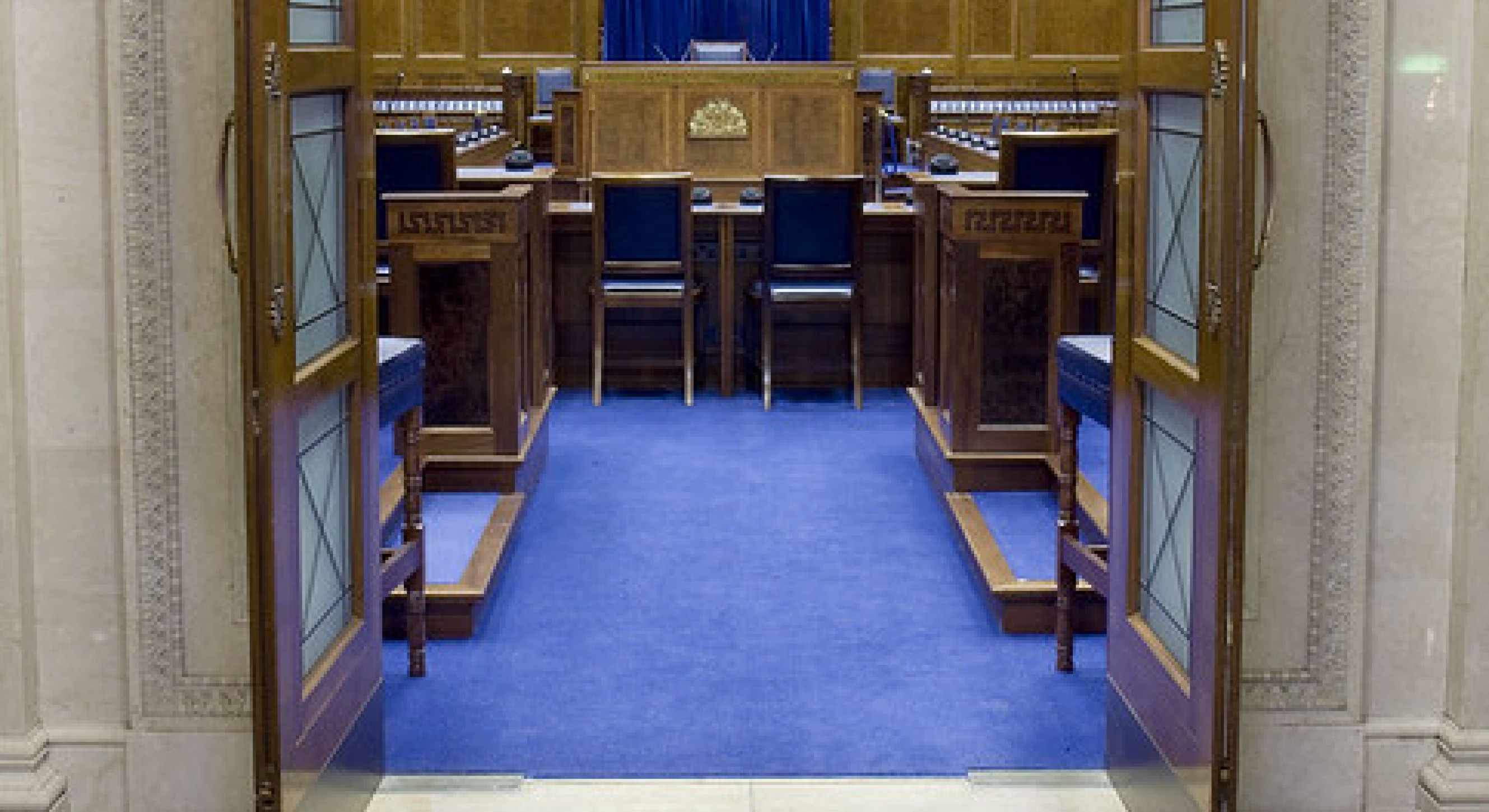Stormont Assembly
The political parties in Northern Ireland came together to form an Executive this Saturday. This was three years after the devolved Assembly was suspended when Sinn Féin withdrew the power–sharing Executive because of disagreement with the DUP over a renewable energy scheme. The reforming of the Executive was a result of negotiations brokered by the UK and Irish governments that produced a new deal earlier in the week called New Decade, New Approach.
There is cross–community consensus that this will end the instability of recent years, marked by pay disputes in the health sector, the uncertainties of Brexit and disagreements over issues such as an Irish Language Act. Negotiations have been ongoing since May 2019 after the murder of the journalist Lyra McKee as she observed a riot in Derry.
The five major parties – DUP, Sinn Féin, Alliance, SDLP and UUP – have joined the Executive. The First Minister (Arlene Foster) and Deputy First Minister (Michelle O’Neill) will co–chair the Executive and are taken from the two largest parties – currently the DUP and Sinn Féin, respectively. Prime Minister Boris Johnson and the Taoiseach Leo Varadkar visited Belfast on Monday to mark the new deal.
The new deal includes new funding commitments and reforms to health, education and justice, as well as a series of revisions about how the Assembly and the Executive will operate. We have highlighted a few below.
The petition of concern has been reformed, with parties committing to use it as a last resort and now requiring members from two or more parties. It was originally intended to prevent one community passing laws that would harm the other, but after the DUP used it to block equal marriage in 2015, there was criticism that this was a misuse of the mechanism.
Another sticking point has been a call for an Irish Language Act which has been resisted by many unionists. A compromise has been reached, however, as the new deal will see commissioners for the Irish language and for the Ulster Scots/Ulster British tradition.
New Decade, New Approach also includes a commitment from the UK government to make it easier for all citizens of Northern Ireland, whether British, Irish or both, to bring their family members to the UK. There have been difficulties for Irish citizens in Northern Ireland doing so, as highlighted by the campaigner Emma DeSouza. Emma spoke about her story and campaign at our Brexit through the Green event in July.
Same–sex marriage
As of today, same–sex marriages and opposite–sex civil partnerships are now legal. This was a result of an amendment proposed by Conor McGinn MP and passed by MPs in Westminster in July 2019. The first ceremonies will take place on 14 February 2020 – Valentine’s Day. Civil partnerships for same–sex couples have been legal UK–wide since 2005.
Irish in Britain is proud to have supported the campaign for equal marriage. We co–hosted a conference with Irish LGBT Network London entitled LGBT Equality and Ireland: Past and Present in November 2018 which featured academics, politicians and campaigners.
Originally proposed by Stella Creasy MP, another amendment passed in July places the UK government under a duty to bring forward regulations to introduce a new legal framework for abortion in Northern Ireland by 31 March 2020.
With abortion decriminalised and same–sex marriage legalised, Northern Ireland will join Ireland, which voted in favour of both in recent referenda, and the rest of the UK.
